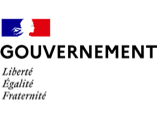Support structures for people with disabilities
Innovating structures for people with disabilities
Innovators in the medico-social and social sector play an essential role in the evolution and improvement of structures for people with disabilities.
The importance of structures for people with disabilities
Structures dedicated to people with disabilities, whether children or adults, are essential for providing appropriate support and accommodation. They enable people with disabilities to lead independent, fulfilling lives, benefiting from tailor-made services. For innovators, these structures represent fertile ground for the development of new solutions.
Structures and services for people with disabilities
Centres d'Action Médico-Sociale Précoce (CAMSP)
CAMSPs provide preventive, diagnostic and support services for children under 6 with disabilities or at risk of disability.
Services Mandataires Judiciaires à la Protection des Majeurs (MJPM)
These services are responsible for the legal protection of adults with disabilities. They manage the property and personal affairs of adults under guardianship or curatorship. These services are crucial to ensuring a secure, well-managed life for adults.
Centres Médico-Psycho-Pédagogiques (CMPP)
CMPPs offer outpatient consultation and care for children and adolescents with psychological disorders or learning difficulties, facilitating a balanced and stable life from an early age.
Experimental facilities
These establishments are testing new approaches and methods to improve support for people with disabilities. They are prime locations for innovation and research, improving the daily lives of children and adults with disabilities.
Institut Médico-Educatif (IME)
IMEs cater for children and adolescents with intellectual disabilities. They offer adapted education and specialized medical care, essential for an enriching school and social life.
Institut d'Education Motrice (IEM)
IEMs specialize in caring for children and adolescents with motor impairments, offering educational and therapeutic care, guaranteeing an active and autonomous daily life.
Institut Educatif, Thérapeutique et Pédagogique (ITEP)
ITEPs are aimed at young people experiencing psychological difficulties that seriously disrupt socialization and access to learning.
Service d'Education Spéciale et de Soins à Domicile (SESSAD)
SESSADs provide home-based educational and therapeutic services for children and adolescents with disabilities, facilitating their social and educational integration.
Services d'accompagnement médico-sociaux et sociaux
These services provide personalized support for people with disabilities to help them in their daily lives, autonomy and social integration. They are essential to ensuring a quality life for adults and children with disabilities.
Etablissement d'Accueil Médicalisé
These establishments accommodate people requiring constant medical assistance, offering specialized care tailored to their specific needs.
Etablissement d'Accueil Non Médicalisé (EANM)
EANMs are residential homes for people with disabilities who do not require intensive medical care. An EANM home provides daily support for its residents to carry out their activities, offering them an active and independent life.
Etablissements et Services de Préorientation et de Réadaptation Professionnelle (ESPO and ESRP)
These structures help people with disabilities find their professional path and integrate into the world of work through specialized training and support.
Etablissement et Service d'Aide par le Travail (ESAT) and Entreprises Adaptées (EA)
ESATs and EAs offer employment opportunities tailored to the abilities of people with disabilities, promoting their professional and social integration.
Opportunities for innovation in the medico-social and social sector
Structures for people with disabilities offer many opportunities for innovators in the medico-social and social sector. The integration of digital technologies, such as medical monitoring applications, teleconsultation platforms, and daily life management tools, can transform support and significantly improve the quality of life of people with disabilities.
Innovators can collaborate with these facilities to develop tailor-made solutions, adapted to the specific needs of users. Initiatives can include digital training programs for staff, secure health data management systems, augmentative communication devices for people with communication disorders, etc.
A vast and promising field of action for innovating and transforming the medico-social and social sector
Innovation in structures for people with disabilities is essential to improving the services and support offered. By understanding specific needs and developing appropriate technological solutions, professionals in the medico-social and social sector can make a significant contribution to the fulfillment and autonomy of people with disabilities. Innovations make it possible to create optimal living environments for both children and adults, ensuring appropriate accommodation and personalized services.
Supporting people with disabilities is a type of structures in the medico-social and social sector.

